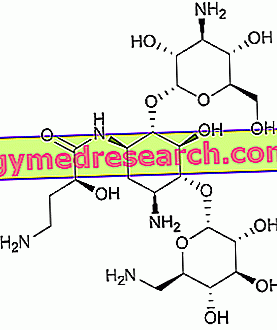EPREX ® is a drug based on Epoetin Alpha.
THERAPEUTIC GROUP: Antianemic - hormones and related substances.
IndicationsAction mechanismStudies and clinical effectiveness Usage and dosage instructionsWarnings Pregnancy and lactationInteractionsContraindicationsUndesirable effects

Indications EPREX ® Epoetin alfa
EPREX ® is used as a specialist treatment in patients undergoing chemotherapy for solid tumors, malignant lymphoma or multiple myeloma, or at transfusion risk to reduce the need for transfusions.
EPREX ® can also be used in patients with moderate to non-iron deficiency anemia, in anemic patients with chronic renal failure and in pediatric patients, when blood supply is insufficient or significantly increases transfusion therapeutic demand.
Similarly, EPREX ® can be used in patients undergoing major surgery for whom significant blood loss is expected.
Mechanism of action EPREX ® Epoetin alfa
Epoetin alfa, administered via EPREX ® subcutaneously, reaches peak plasma concentrations after approximately 12 -18 hours, with an absolute bioavailability of 20%, remaining in circulation for approximately 24 hours.
The pharmacokinetic characteristics of intravenous administration are markedly different, with a half-life of epoetin alfa around 4 hours, increased bioavailability and maximum plasma concentrations that are observed in much shorter time intervals.
Epoetin alfa is a glycoprotein obtained through gene recombination techniques, which perfectly mirrors and structures the endogenous hormone erythropoietin. The latter - with its 165 amino acids and the remaining glucidic part, produced mainly in the kidney, but partly also from the brain and fetal liver - acts at the level of the bone marrow stimulating the mitotic process and inhibiting the apoptotic one of the erythroid precursors, ensuring a significant increase in erythrocyte differentiation, hence of the hematocrit. The main effect of erythropoietin is therefore to support the production of red blood cells, improving the oxygenating capacity of blood and tissues.
However, recent studies are trying to characterize the potential side effects of these exogenous hormones, given the expression of receptors for erythropoietin also on tumor and brain cells. Although the data obtained are still statistically insignificant, it appears that high-dose erythropoietin therapy may increase mortality in cancer patients and exert actions that are not yet fully characterized on the central nervous system.
These data therefore highlight the importance of the risk / benefit assessment before prescribing and taking drugs such as EPREX ®
Studies carried out and clinical efficacy
EPOETIN ALFA IN ANEMIC PATIENTS SUBJECT TO CHEMOTHERAPY
Chronic fatigue is one of the most common symptoms among cancer patients undergoing chemotherapy. One of the crucial mechanisms that affects this feeling is anemia. For this reason we tried to understand how in 1379 patients suffering from Hodgkin's lymphoma, during chemotherapy with relative anemia, epoetin alfa could affect their fate. The study shows that the intake of 40, 000 IU per week has guaranteed a definite improvement in hemoglobin levels, reducing the need for transfusions but not affecting the feeling of fatigue.
2. RECOMBINATING ERITROPOIETINE TREATMENT AND MORTALITY
A study of enormous impact that shows how the mortality of cancer patients and related anemia, treated with recombinant erythropoietin analogues, can significantly increase. This work conducted on approximately 14, 000 patients further reaffirms the importance of the risk / benefit assessment before undertaking epoetin intake.
3. EPOETIN ALPHA AND QUALITY OF LIFE OF PAZEINTE IN CHEMOTHERAPY
Although the anemia resulting from the tumor pathology and related chemotherapy treatment can significantly reduce the patient's quality of life, leading to chronic fatigue, the correction of this factor, through the use of epoetin alfa, did not guarantee any improvement in the quality of life measured through the FACT-An measurement scale (Funciontal Assessment of Cancer Therapy-Anemina).
Method of use and dosage
EPREX ® 1, 000UI / 0.5 ml vials; 2000UI / 0.5 ml; 3000UI / 0.3 ml; 4000UI / 0.4ml; 5000UI / 0.5ml; 6000UI / 0.6ml; 8000UI / 0.8ml; 10000UI / 1ml; 40000IU / 1ml of epoetin alfa : for such specialized therapies it is not possible to define a standard dosage valid for all.
The therapeutic procedure, the duration, the dosage and the route of administration of the therapy, must be formulated by the specialist doctor on the basis of the type and severity of the pathology, the patient's state of health, the therapeutic goals set, and the progress of therapy.
IN EVERY CASE, BEFORE TAKING EPREX ® Epoetin alfa - THE REQUIREMENT AND CHECK OF YOUR DOCTOR IS NECESSARY.
Warnings EPREX ® Epoetin alfa
Before starting treatment with EPREX ® it is necessary to make sure that the anemic picture (Hb less than 13g / dL) is not characterized by an iron deficiency. This element should be provided orally (200 / 300mg per day), during epoetin alfa therapy, in order to keep the erythrodifferentiation process effective.
In patients with chronic renal failure, the rate of hemoglobin should be constantly monitored in order to best adapt therapy, while in patients with hypertension routine blood pressure control is required; eventually, the hypothesis of a supportive antihypertensive therapy should be considered after taking EPREX ®
Subcutaneous administration of epoetin alfa was rarely accompanied by the production of antiepoetin antibodies, which may render the therapy totally ineffective leading to a rapid decrease in circulating erythrocytes. In these cases it would be advisable to ascertain the presence of any other causes of anemia, and to avoid the administration of any form of epoetin in order to reduce possible cross-reactions.
Several studies have associated epoetin alfa therapy with an increase in thrombotic events, particularly significant for the cancer patient. In this regard, before taking EPREX ® it would be advisable to monitor the vascular situation and carefully evaluate the risk / benefit ratio of the therapy.
Erythropoietin is an important growth factor, and its receptors have also been observed on the surface of tumor cells. The presence of these receptors could represent a possible risk factor for cancer patients, who represent one of the main users of EPREX ® therapy
Epoetin alfa does not affect the normal ability to drive vehicles and use machines.
PREGNANCY AND BREASTFEEDING
Studies conducted on experimental models have shown the presence of potential toxic effects on the reproductive function and on the health of the fetus, following the administration of epoetin alfa during pregnancy.
In light of these studies, and given the absence of human clinical trials, the intake of EPREX ® is contraindicated both during the period of pregnancy and during lactation.
Interactions
At the moment there are no known interactions between epoetin alfa and other active ingredients capable of compromising the patient's health or altering the normal pharmacokinetic properties of EPREX ®
The only drug that could probably be affected by the concomitant administration of epoetin alfa is ciclosporin, for which it would be appropriate to monitor blood concentrations.
Contraindications EPREX ® Epoetin alfa
EPREX ® is contraindicated in case of hypersensitivity to the active ingredient or to one of its excipients, in the case of pure aplasia of the cells of the red series developed after taking any form of epoetin, and in patients suffering from uncontrolled hypertension, coronary, arterial or cerebral vascular disorders.
Given the risk of thrombosis, EPREX ® should not be given to patients in whom adequate antithrombotic prophylaxis cannot be applied.
Undesirable effects - Side effects
Epoetin alfa therapy, but in general with most recombinant erythropoietins, exposes the patient to particular risks that must necessarily be considered before the administration of this drug.
Taking EPREX ® in the early stages is accompanied by clinically insignificant events such as skin rash, headache, widespread pain, dizziness and asthenia that tend to regress readily.
More important, however, are the possible side effects in hemodynamic and cardiovascular terms, which, although less frequent, can be decidedly more dangerous. Thrombocytosis, thrombosis, transient ischemic events, embolisms, aneurysms, pure aplasia of red cells and hypertension, are the most common and clinically very important adverse reactions.
Note
EPREX ® can only be sold under specialized medical prescription (nephrologist, internist, hematologist, oncologist, anesthesiologist, blood transfusionist, pediatrician, surgeon).
The use of EPREX ® in sports, without there being a real therapeutic need, constitutes DOPING, which in addition to being an unfair practice in terms of sportsmanship, and punishable by law, exposes the athlete to serious risks for the own health.



